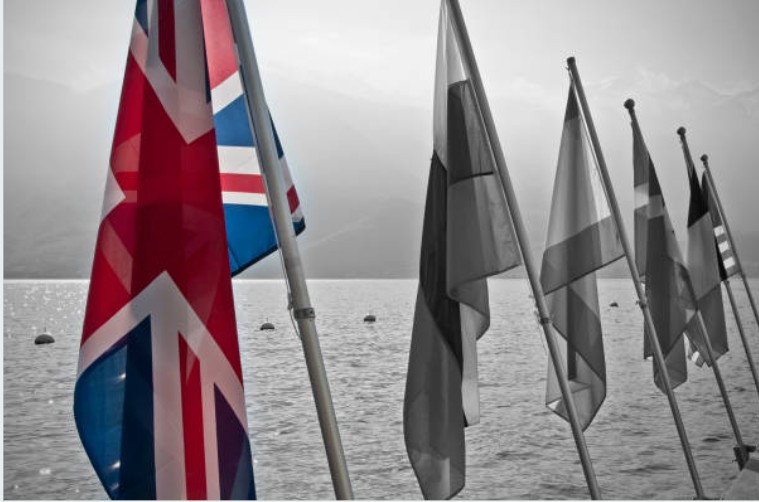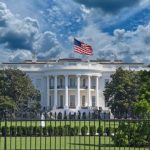In recent years, UK politics has seen an increasing focus on various political ideologies, with the term Far Left emerging in many debates. But what does Far Left mean in UK politics? And why is it important for UK society? This blog post will take you from the basics to a comprehensive understanding of the Far Left in UK politics, exploring its core ideologies, historical context, key players, and policy impacts, all tailored for our UK audience.
What Does Far Left Mean in UK Politics?
The “Far Left” refers to the most radical segment of the left-wing political spectrum. In the UK, it is associated with ideologies such as socialism, communism, and anarchism, which advocate for sweeping changes to the existing social, political, and economic structures. These groups typically promote state intervention, wealth redistribution, and the restructuring of societal norms.
Key Characteristics of the Far Left:
- Radical Socialism: A drive to transform society via state control over key industries.
- Wealth Redistribution: Emphasis on progressive taxation and robust welfare programs to bridge the economic divide.
- Anti-Capitalism: Critique of capitalism as an exploitative system that favors a minority.
- Worker Empowerment: Promotion of workers’ rights through stronger trade unions and cooperative business models.
How Does Far Left Influence UK Politics?

Far Left ideologies, though representing a minority, influence public debates, grassroots movements, and even mainstream political parties. Their ideas often surface in discussions around economic inequality, public service reform, and environmental policy.
Far Left Impact: A Mid-Content Snapshot
Below is a table summarising key areas influenced by Far-Left ideologies in the UK:
| Area | Far Left Impact |
| Economic Policy | Advocates for nationalisation of industries, progressive taxation, and wealth redistribution. |
| Social Policy | Pushes for free education, universal healthcare, and extensive welfare programs. |
| Environmental Action | Supports radical measures for a green economy, including a Green New Deal framework. |
| Labour Movements | Influences party platforms and public protests, especially during anti-austerity and social justice campaigns. |
What Is the Historical Context of the Far Left in the UK?
Understanding the evolution of the Far Left in the UK helps explain its current position and influence. The roots of Far-Left ideologies can be traced back to early socialist movements, which emerged in response to industrialisation and economic inequality.
Historical Milestones:
- Early 20th Century: Growth of socialist and communist movements amidst the social upheaval of World War I.
- Post-World War II: Expansion of the welfare state under Labour governments, which laid the groundwork for more radical critiques of capitalism.
- Late 20th Century: The decline of traditional manufacturing industries and rising unemployment spurred new Far Left critiques of economic policy.
- 21st Century: Contemporary movements, fuelled by increasing inequality and climate concerns, have reinvigorated Far Left debates.
How Do UK Voters Perceive the Far Left?

Voter attitudes towards the Far Left vary widely, reflecting the complex and evolving political landscape in the UK.
Voter Perspectives:
- Supportive: Many voters attracted to the Far Left are disillusioned with the status quo and favour its radical approach to tackling inequality.
- Sceptical: Others see Far Left policies as too extreme or impractical, preferring moderate reforms within the current system.
- Influenced by Media: Public opinion is also shaped by how the media portrays Far Left movements, often highlighting controversial aspects of their agenda.
How Does Media Portray the Far Left in UK Politics?
The role of media in framing the Far Left cannot be underestimated. Media coverage often oscillates between portraying them as champions of social justice and as radical elements that challenge established norms.
Key Media Themes:
- Controversy and Debate: The Media often focuses on the more dramatic aspects of Far-Left policies, fuelling public debate.
- Influence on Mainstream Parties: Coverage sometimes highlights how far-left ideas have influenced larger parties, especially during periods of political upheaval.
- Social Movements: The media also documents the role of far-left ideologies in grassroots movements, especially in protests and public demonstrations.
What Challenges Does the Far-Left Face in UK Politics?
Despite its influence in shaping public discourse, the Far Left faces several challenges in the UK political arena.
Notable Challenges:
- Electoral Viability: The Far Left often struggles to convert its ideological appeal into electoral success.
- Internal Divisions: Differences in strategy and ideology within Far-Left groups can lead to fragmented movements.
- Public Perception: Scepticism from moderate voters and portrayals in mainstream media can limit broader appeal.
- Policy Implementation: Radical proposals sometimes face practical hurdles when trying to be implemented within established political systems.
Who Are the Key Parties and Figures Representing the Far Left?
Several political parties and influential figures in the UK embody Far Left ideologies, consistently pushing for systemic change.
Notable Groups and Figures:
1. Political Parties:
-
- Socialist Workers Party (SWP): Known for its revolutionary stance against capitalism.
- Communist Party of Britain (CPB): Advocates for Marxist principles and the eventual transition to a communist society.
- Green Party (Radical Faction): While broadly centre-left, some factions advocate for Far Left policies, including nationalisation and sweeping environmental reforms.
2. Prominent Figures:
-
- Jeremy Corbyn: Former Labour Party leader known for his strong advocacy of far-left policies.
- Diane Abbott: A long-time Labour MP and a vocal proponent of anti-austerity and progressive reforms.
What Are Some Key Far Left Policies in the UK?

The Far Left pushes for transformative changes intended to challenge the existing economic and social order.
Core Policies Include:
- Nationalisation of Industries: Bringing essential services such as healthcare, education, and energy under public ownership.
- Progressive Taxation: Implementing tax policies that require higher contributions from the wealthy to support public services.
- Universal Basic Income (UBI): Proposing regular, unconditional payments to citizens to ensure a basic standard of living.
- Free Education and Healthcare: Advocating for the removal of financial barriers to essential services to promote social equity.
Can the Far Left Reshape the Future of the UK?
The debate continues whether the Far Left can play a transformative role in shaping the UK’s future. While their current influence is largely indirect, through public discourse and social movements, ongoing economic and environmental challenges may pave the way for more radical changes.
Future Considerations:
- Evolving Political Landscape: Economic inequality and environmental crises may drive more voters to consider radical alternatives.
- Coalition Potential: There is potential for the Far Left to influence mainstream policy through alliances with other progressive groups.
- Public Engagement: Continued public interest in social justice and environmental sustainability could see Far Left ideas gaining traction over time.
Conclusion
Understanding what Does Far Left Mean in UK Politics? is essential for grasping the broader debates within UK political discourse. Although the Far Left may not dominate government structures, its influence on public debates, social movements, and even mainstream policies is significant. With a rich historical context, diverse voter perceptions, and evolving challenges, the Far Left continues to shape discussions about the future of the UK.
FAQs: Exploring Far Left Politics in the UK
Is the Far Left popular in the UK?
While the Far Left remains a minority force in electoral politics, its ideas resonate with many voters, especially during periods of economic hardship and social change.
Does the Far Left have a direct impact on government policy?
Although direct representation in government is limited, far-left ideologies significantly influence public debates and have indirectly shaped policy through their impact on larger political parties.
What differentiates the Far Left from the broader Left Wing?
The Far Left demands radical, systemic change, often challenging the very foundations of capitalism, whereas the broader Left Wing typically seeks reform within the current system.
How do Far Left policies address social inequality?
By advocating for wealth redistribution, nationalisation of industries, and comprehensive public services, Far Left policies aim to create a fairer, more equitable society.






